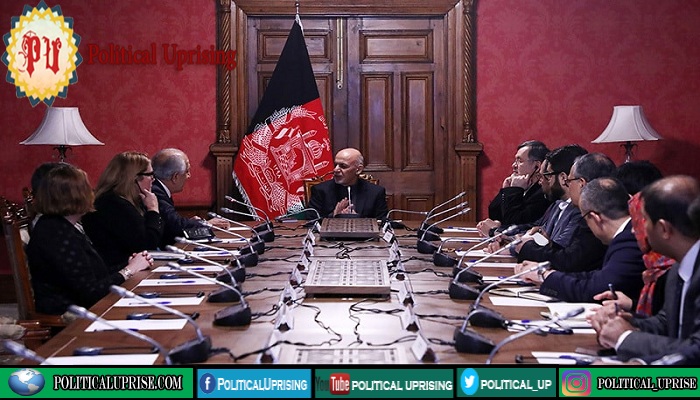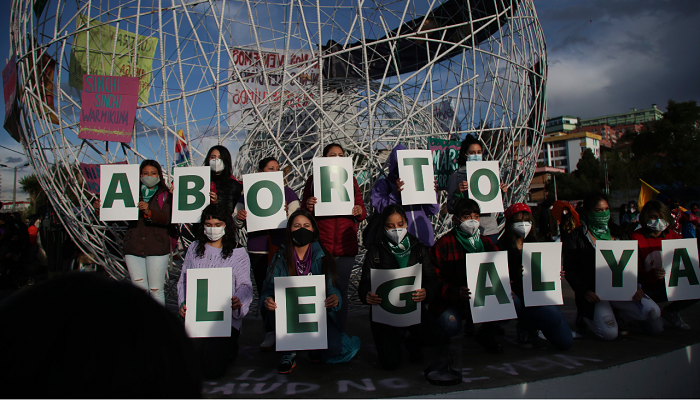Former member of the M-19 movement, Gustavo Petro wins Colombia’s presidential runoff with 50.5 percent of the vote.
Gustavo Petro, a former rebel fighter who has promised profound social and economic change, has won Colombia’s presidency.
The victory in Sunday’s presidential runoff election will make Petro Colombia’s first left-wing president.
He won 50.4 percent of the vote, while his rival Rodolfo Hernandez, a construction magnate, had 47.3 percFent.
Covid cases surges on Colombia’s Caribbean coast, doctors warn deaths undetected
“As of today, Colombia is changing, a real change that guides us to one of our aims: the politics of love … of understanding and dialogue,” a jubilant Petro told his supporters in the Colombian capital, Bogota.

The win for Petro, a senator and a former mayor of Bogota, underlined a drastic change in presidential politics for a country that has long marginalised the left for its perceived association with the armed conflict. Petro himself was once a rebel with the now-defunct M-19 movement and was granted amnesty after being jailed for his involvement with the group.
In his victory speech, Petro, 62, issued a call for unity and extended an olive branch to some of his harshest critics, saying all members of the opposition will be welcomed at the presidential palace “to discuss the problems of Colombia”.
“From this government that is beginning there will never be political persecution or legal persecution, there will only be respect and dialogue,” he said, adding that he will listen to not only those who have raised arms but also to “that silent majority of peasants, Indigenous people, women, youth”.
Outgoing conservative President Ivan Duque congratulated Petro shortly after the results were announced, and Hernandez quickly conceded his defeat. “I accept the result, as it should be, if we want our institutions to be firm,” Hernandez said in a video on social media. “I sincerely hope that this decision is beneficial for everyone.”
As results rolled in at the Petro campaign celebration in Bogota, supporter Alejandro Forero, 40, cried.
“Finally, thank God. I know he will be a good president and he will help those of us who are least privileged. This is going to change for the better,” Forero, who is unemployed said.
Spain National Tribunal approves extradition of Mexico’s former oil chief
This campaign was Petro’s third presidential bid, and his victory adds the Andean nation to a list of Latin American countries that have elected progressives in recent years. Petro has pledged to fight inequality with free university education, pension reforms and high taxes on unproductive land. He has also pledged to fully implement a 2016 peace deal with FARC rebels and seek talks with the still-active ELN rebels.

In another historic achievement, Petro’s running mate Francia Marquez, a single mother and former housekeeper, will be the country’s first Afro-Colombian female vice president.
“The great challenge that all of us Colombians have is reconciliation,” said Marquez, who was the target of threats during a fractious campaign. “The time has come to build peace, a peace that implies social justice.”
Thousands of people took to the streets in Bogota to celebrate Petro and Marquez’s win, with some dancing near the city’s largest polling place under intermittent rain. “I’m celebrating because finally we’re going to have change … this shows there is hope,” academic Lusimar Asprilla, 25 said.
Petro’s supporters “say this is the time for real change in Colombia profound reforms that will improve people’s lives in this country that has been at war for many years. Even though a peace agreement was signed with the left-wing rebel movement, the FARC, conflict continues to affect many parts of the country,” she said. “And in his speech, Petro said that this is going to be a government of peace, and that in this country peace means social justice, environmental justice. He has been talking about rethinking oil and gas exploitation, putting an end to fracking and he has pledged not to use his powers to ‘destroy opponents’. We will have to see how he is able to implement these reforms,” she added.
Daniela Cuellar of FTI Consulting said Petro’s victory showed people in Colombia where nearly half the population lives in some form of poverty are eager to fight inequality.
American Intelligence coup of the century
“What the Colombian population demonstrated today is that they are seeking a government focused on key social issues,” she told a news agency.“Colombia’s longstanding ailments of inequality, which were exacerbated by COVID-19, have contributed to the electorate seeking a shift.”
But a fragmented legislature, where a dozen parties have seats, will act as a check on Petro’s proposals.
“Colombia’s institutional strength and rule of law appear sufficiently robust for the country to maintain economic stability,” Cuellar said. “Moreover, campaigning is not governing, Petro’s policies will be more moderate.”
“Even if he tries to pass radical reforms, he does not have the congressional support to implement them,” she added.
Other analysts raised concern over the possibility of a political deadlock.
“This result does not give the new president a clear mandate to execute his policy without at least trying to address concerns from his counterpart,” Sergio Guzman, president of the Colombia Risk Analysis consultancy, told a news agency. Unless Petro learns “how to govern with the other half of the country, we can expect four years of stalemate and brinksmanship,” he added.
Left-wing leaders in the Latin America region were quick to congratulate Petro.
“Gustavo Petro’s victory is historic. Colombia’s conservatives have always been tenacious and tough,” Mexico President Andres Manuel Lopez Obrador wrote on Twitter.
“Joy for Latin America! We will work together for the unity of our continent in the challenges of a world changing rapidly,” tweeted Chile President Gabriel Boric.
Acabo de hablar con @petrogustavo para felicitarlo por su triunfo en la presidencia de Colombia junto a @FranciaMarquezM. Alegría para América Latina! Trabajaremos juntos por la unidad de nuestro continente en los desafíos de un mundo que cambia velozmente. Seguimos!
— Gabriel Boric Font (@GabrielBoric) June 19, 2022
“The will of the Colombian people has been heard, it went out to defend the path to democracy and peace,” said Venezuela’s President Nicolas Maduro, who has been branded a dictator by the opposition in his own country.
Meanwhile, US Secretary of State Antony Blinken sent congratulations to “the people of Colombia for making their voices heard in a free and fair presidential election”.
Congratulations to the Colombian people for exercising their right to vote and reaffirming the strength of their democracy. We look forward to continuing our strong partnership with President-Elect @petrogustavo and building a more democratic and equitable hemisphere.
— Secretary Antony Blinken (@SecBlinken) June 20, 2022
Petro has said that he is willing to resume diplomatic relations with Venezuela, which were halted in 2019. He also wants to make changes to Colombia’s relations with the United States by seeking a renegotiation of a free trade agreement and new solutions in the fight against drug trafficking.
Some 22.6 million people of the 39 million eligible voters cast a ballot, about 1.2 million more than in the first round. Some 2.3 percent of voters turned in protest votes, backing neither candidate.
The electoral observer mission said one of Petro’s election monitors and a soldier were killed, both in the south.



